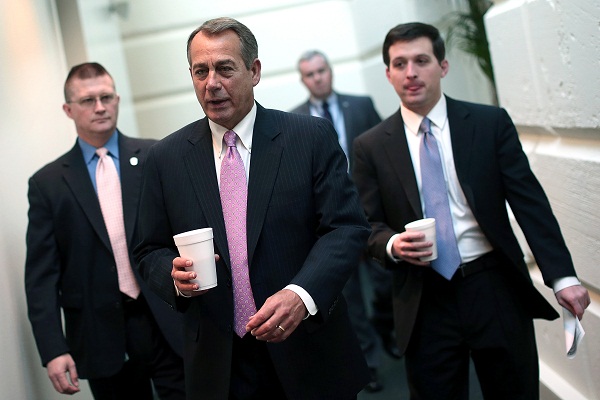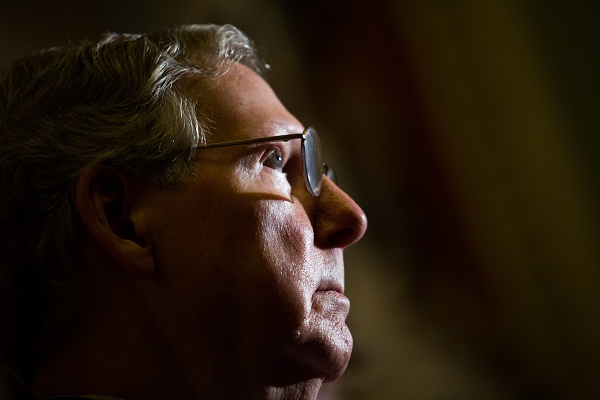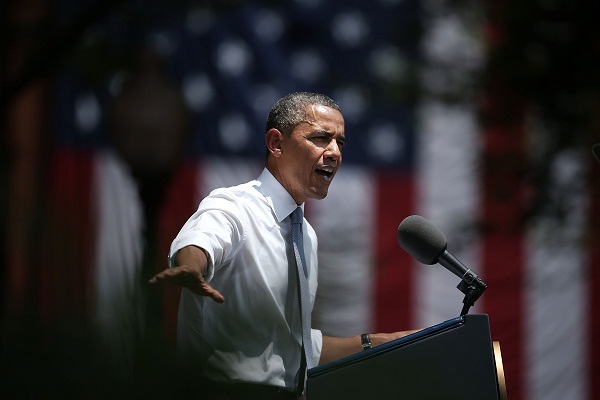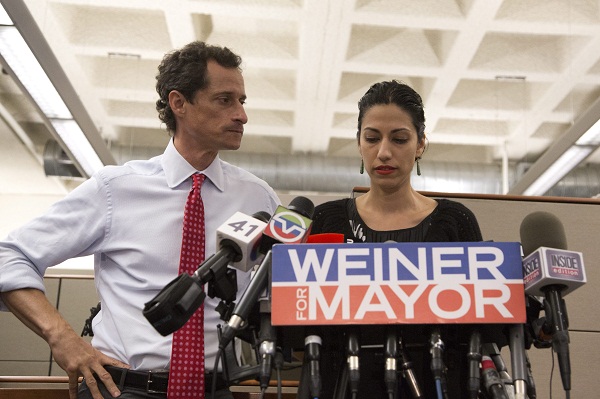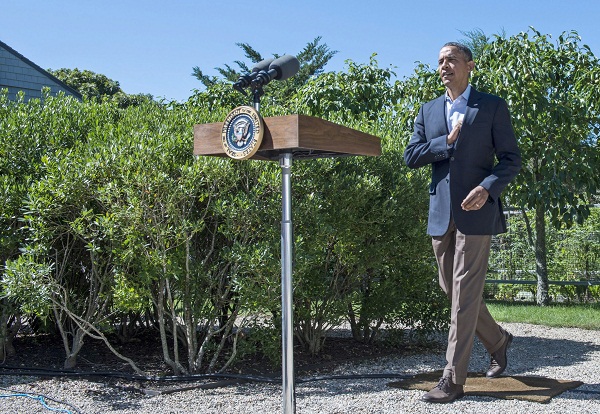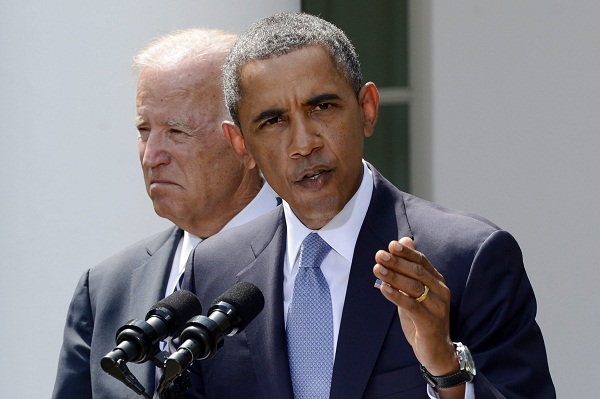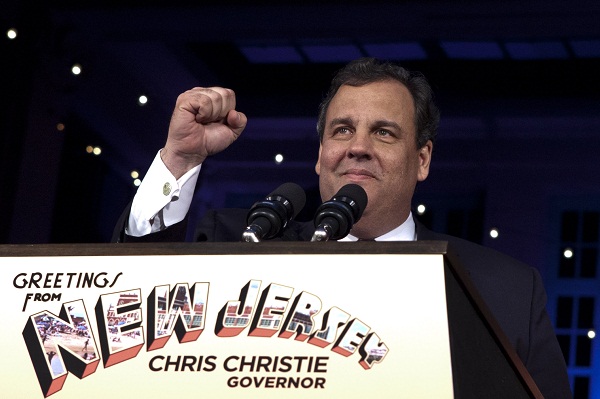2013: The year in politics
Following the heated 2012 presidential election, and years of partisan fighting within the halls of Congress, 2013 offered familiar scenes: Republican lawmakers condemning President Obama’s agenda, with Obama blasting the GOP opposition. From inauguration to the government shutdown, these are the events that defined the year in politics.
Tim Scott sworn in as South Carolina senator
.JPG)
Former South Carolina Rep. Tim Scott was appointed to the Senate to fill in for the departing Jim DeMint in late 2012, but he wasn’t sworn in until early in the next year. In doing so, he became the first African American senator since the retirement of Illinois Sen. Roland Burris and the first black Southern senator since the days of Reconstruction.
Scott had already made history with his House victory in 2010, when he became the first African American to represent South Carolina in Congress since 1897.
He was later temporarily joined by Sen. Mo Cowan (D-Mass.), who was appointed to John Kerry’s old seat between Feb. 1 and July 16, and then Sen. Cory Booker (D-N.J.), whose win in a special election made him the second African American senator serving in the 113th Congress.
John Boehner reelected as speaker of the House
Rep. John Boehner (R-Ohio) was reelected as the speaker of the House early in the year, though not without some dissent from fellow House Republicans.
A total of 12 Republicans either voted for another representative or abstained, as conservatives voiced their displeasure with Boehner’s leadership. The Ohio Republican topped Rep. Nancy Pelosi (D-Calif.) in the final tally, 220-192.
President Obama’s second inauguration
Though the ceremonies did not approach the spectacle of his first inauguration, President Obama’s second term officially began before a crowd of more than a million people in January. Sworn in the previous day by Chief Supreme Court Justice John Roberts — the traditional inaugural fell on a Sunday — Obama used his second inaugural address to try to advance a number of causes, including gay rights, gun control, immigration and climate change. White House efforts on several of those issues would eventually stall in Congress.
George W. Bush’s paintings revealed
President George W. Bush’s retirement hobby was revealed by a hacker who released private information from the former president and his family in February. Photos of self-portraits Bush had painted during bathing quickly spread across the Internet, with more images, of animals and still life, trickling out as the year continued. Later in the year Bush would go public, offering “Tonight Show” host Jay Leno a portrait when he appeared on the show.
Obama’s fifth State of the Union address
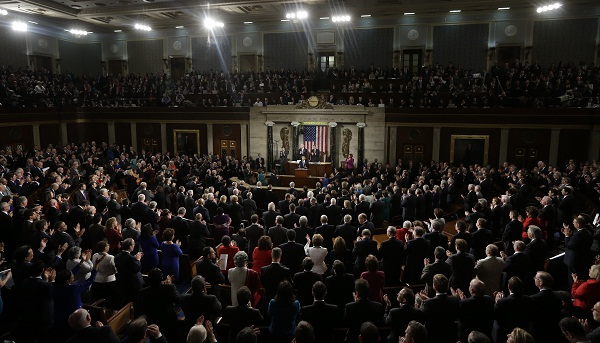
After the spirited 2012 election and the partisan tone of his first term in office, President Obama took to the first State of the Union address of his second term to lay out a broad domestic agenda, with little mention of international or national security issues. Obama reiterated his opposition to sequestration and entitlement cuts, and support for U.S. energy independence, an increased minimum wage, gun-control measures and immigration reform.
In a passage that alluded to the battles in Washington to come, Obama said: “The American people don’t expect government to solve every problem. They don’t expect those of us in this chamber to agree on every issue. But they do expect us to put the nation’s interests before party.”
Rand Paul’s drone filibuster
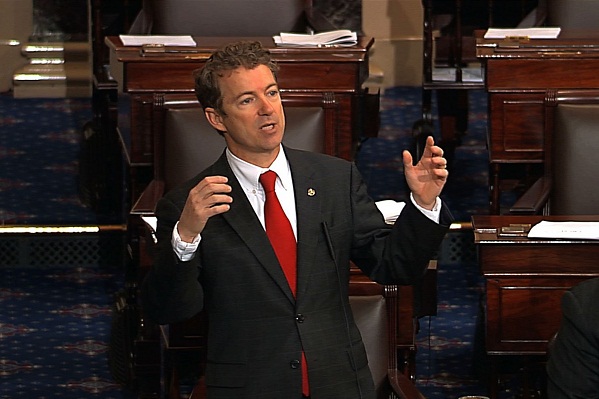
Sen. Rand Paul (R-Ky.) gained national attention with a nearly 13-hour filibuster that drew attention to the Obama administration’s use of drones abroad, questioning at length the legality of the White House’s tactics, and the implications for future generations. Paul drew a number of Republican colleagues, including Sens. Marco Rubio and Mitch McConnell, to take to the floor in his stead and praise his efforts. The original purpose of the speech was to filibuster the nomination of CIA director John Brennan, who eventually won Senate approval.
Mitch McConnell’s anti-Ashley Judd tactics
Senate Minority Leader Mitch McConnell faces a primary challenge in 2014 from a Republican tea party candidate, as well a general election fight against Democrat Alison Lundergan Grimes. But it was his tactics against an earlier potential Democratic rival, actress Ashley Judd, that sparked controversy after recordings of McConnell discussing her were leaked to the media. In the audio, McConnell is heard talking about using Judd’s history of mental difficulties against her.
Obama’s fiery gun control speech
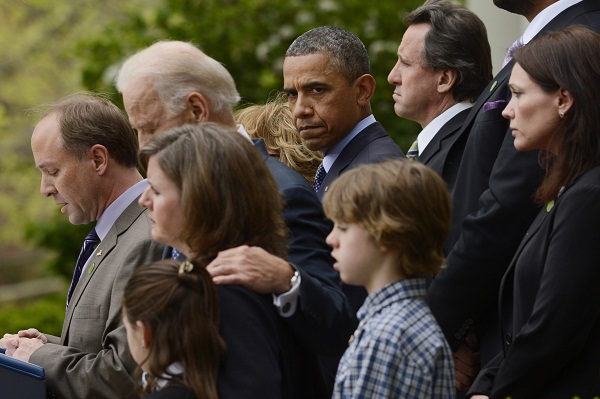
After hopes of enacting new gun-control measures after the mass shootings in Aurora, Colo.; Oak Creek, Wis.; and Newtown, Conn.; were dashed in Congress, President Obama delivered a blistering condemnation of legislative inaction.
“Sooner or later, we are going to get this right. The memories of these children demand it. And so do the American people,” Obama said from the Rose Garden, the parents of the Newtown victims arrayed behind him.
Obama changes U.S. drone policy
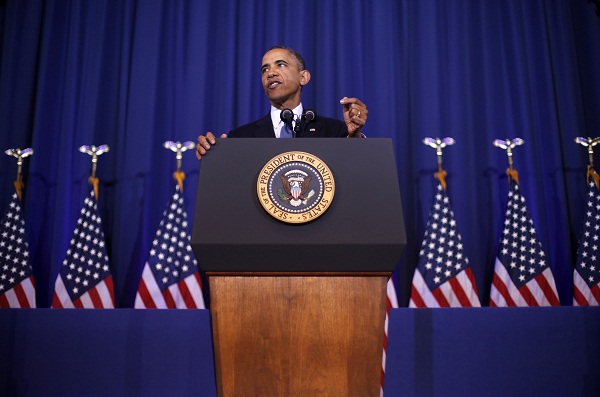
President Obama narrowed U.S. drone policy in an effort to move away from what he called the nation’s “perpetual war-footing.” Among the changes Obama announced: The Defense Department would take the lead on drone strikes instead of the CIA and greater congressional scrutiny of the strikes would be allowed. He also announced steps to close the Guantanamo Bay prison, which he had promised to do during his first presidential campaign.
Edward Snowden’s NSA leaks
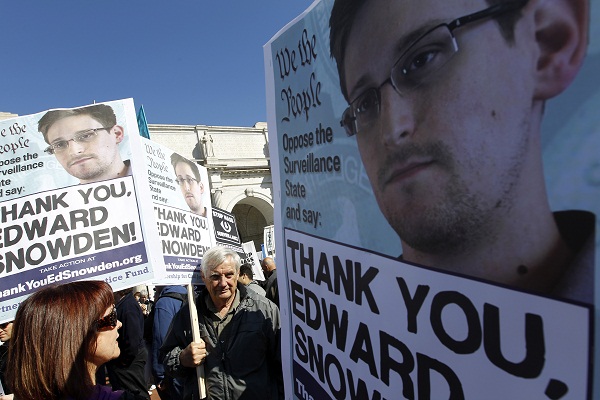
Changing the national discussion of government surveillance entirely, former National Security Agency contractor Edward Snowden leaked documents from the NSA that demonstrated the depth of the NSA’s collection of data from Americans. Additional documents were released through the year. Snowden remains in Russia, where he sought asylum.
Wendy Davis’ abortion filibuster
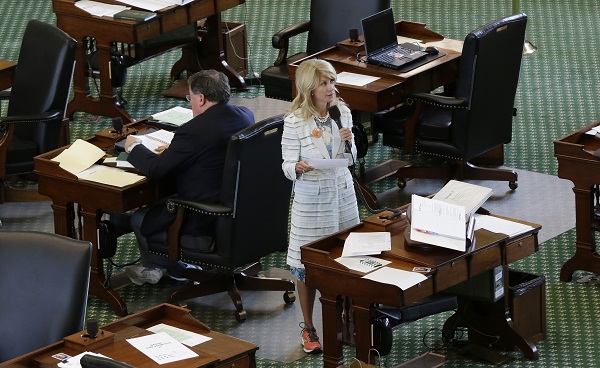
Texas state Sen. Wendy Davis stood up to filibuster Senate Bill 5, legislation restricting access to abortion in the state, and the act propelled her into national prominence. Though her filibuster lasted 11 hours, it was ultimately unsuccessful; Gov. Rick Perry signed the legislation into law later in the year. Davis has since announced a bid to replace Perry, who decided against seeking another term in 2014.
Obama’s climate change address
President Obama, stonewalled by Congress, turned to executive orders to begin climate change reforms the White House contends will reduce greenhouse gas emissions, increase energy efficiency and prevent pollution.
“I refuse to condemn your generation and future generations to a planet that’s beyond fixing,” Obama told students at Georgetown University. Obama also mentioned he would not approve the much-debated Keystone XL pipeline if it posed significant environmental risks. The White House has since been silent on its final decision.
Supreme Court strikes down Prop. 8, DOMA
The Supreme Court handed down two landmark gay-rights rulings in June, striking down the controversial Defense of Marriage Act, and putting a final nail in the coffin of California’s Proposition 8 banning gay marriages. Though neither court ruling enacted gay marriages across the country, they marked another step forward for the movement by freeing states to set their own policies. As of the end of the year, 15 states allowed gay marriage, with Illinois’ legalization set for June 1, 2014.
Obama’s trip to Africa

President Obama embarked on a lengthy trip to Africa in June, traveling to Senegal, Tanzania and South Africa. Obama visited historical sites tied to the slave trade between Africa and the U.S., called for greater ties between the two regions of the world and met with foreign dignitaries.
Obama addresses the George Zimmerman verdict
President Obama stepped into the debate over the June verdict by a Florida jury that George Zimmerman, who shot and killed teenager Trayvon Martin, was not guilty of murder under Florida’s self-defense laws.
“Trayvon Martin could have been me 35 years ago,” Obama said, detailing his own experiences being profiled because of his race, and offering insight into why the killing had resonated so deeply with an African American community long subjected to everyday prejudices not visited on white Americans.
Anthony Weiner’s mayoral campaign collapses
Disgraced former Congressman Anthony Weiner tried to reenter the political ring with a campaign for New York City’s open mayoral seat, and led in several early polls. But as with his congressional career, Weiner’s campaign was derailed by sexually charged online activities. After admitting in July that online relationships with at least three women took place after he was forced from Congress for similar behavior, his support vanished, and he eventually finished in fifth place in the Democratic primary.
Obama addresses violence in Egypt
Faced with a spike in violence over the removal of Egyptian President Mohamed Morsi by the country’s military, and widespread fighting between his Muslim Brotherhood supporters and those celebrating his removal from power, President Obama took leave from his August vacation and condemned violence by government forces. The administration has since suspended substantial amounts of aid funding to the Egyptian government.
Obama calls for strikes on Sryia, defers to Congress
After days of increased tensions, and heightened chances of U.S. intervention in the ongoing Syrian civil war, President Obama told the nation that he would turn to Congress before authorizing any military strikes.
“I have decided that the United States should take military action against Syrian regime targets. This would not be an open-ended intervention. We would not put boots on the ground,” Obama said, but he deferred to Congress. While pro- and anti-intervention advocates battled back and forth, a diplomatic solution emerged seemingly out of nowhere, with Russia, Syria and the U.S. negotiating a Sept. 14 deal to audit and remove Syria’s chemical weapons stockpiles. The destruction of Syria’s declared chemical arsenal has since been completed by U.N. inspectors, without additional military intervention.
Colorado gun control recalls
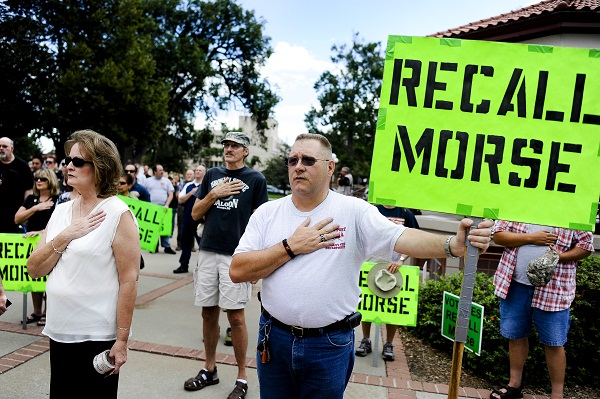
In a backlash against the calls for gun-control measures in the wake of several mass shootings, voters recalled state Senate President John Morse and state Sen. Angela Giron, Democrats who helped push the state’s new gun laws, which included universal background checks and limits on gun magazines.
Since the September recall, state Sen. Evie Hudak, another key Democratic legislator, has resigned to avoid another possible recall election.
Ted Cruz’s Obamacare semi-filibuster
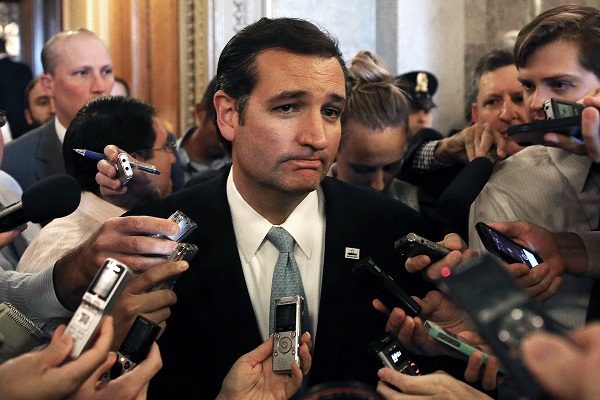
In the buildup to the government shutdown, Sen. Ted Cruz (R-Texas) took the national spotlight with a 21-hour address that technically wasn’t a filibuster, but sure felt like one. Attempting to rally support for legislation to strip funding for the Affordable Care Act, Cruz spoke at length about the bill’s supposed ills, the weak-willed legislators who refused to dismantle it and even referred to “Green Eggs and Ham” and “Duck Dynasty.”
In part due to the semi-filibuster, and because of his persistent criticism of Republicans willing to compromise, Cruz became the face of tea party conservatives during the government shutdown and debt limit debate.
Obamacare insurance exchanges debut
President Obama’s hallmark healthcare reforms met their biggest challenge since being signed into law with the launch of national and state health insurance exchanges. After promises that enrollment would be simple, and Americans wouldn’t lose their preexisting plans, the central HealthCare.gov site crashed repeatedly, numerous individuals’ plans were nixed by insurers and the White House was put on the defensive over the botched rollout.
Obama apologized repeatedly for his failed pledge that “if you like your plan, you can keep it,” and declared that the HealthCare.gov site would be fixed for a majority of users by the end of November. The White House has since asked insurers to add another year of coverage to canceled plans, with some success, and the error-ridden website has improved after extensive revisions, though it remains far from perfect.
For Republicans, the troubled rollout has been seen as validation for their long standing concerns about the law, and for Democrats, the widespread criticism of the law’s debut and its continued problems present a significant problem heading into the 2014 congressional elections.
The government shutdown begins
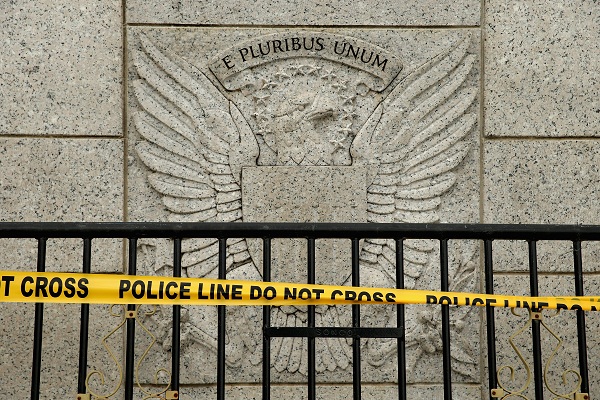
A disagreement over a continuing resolution to keep the federal government funded escalated into a partial government shutdown in October, after Republicans sought to tie the funding to delays or alterations to Obamacare’s looming implementation.
Complicating negotiations was the threat of hitting the debt limit, which had been extended by what Treasury Secretary Jack Lew called “extraordinary measures,” taken by the U.S. Treasury for several months, but which was to be reached by Oct. 17. Conservative Republicans were reluctant to extend the debt limit, while Democrats demanded an extension be granted to maintain the country’s standing with creditors.
The government shutdown comes to an end
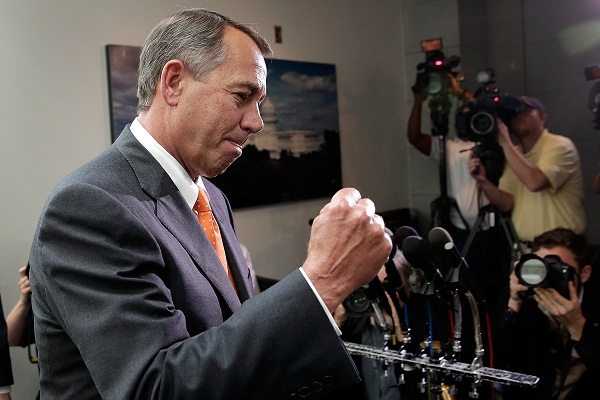
The shutdown finally ended after 16 days, with a compromise passing easily in the Senate with an 81-to-18 vote, and the House, 285 to 144. As part of the deal, Congress reopened all shuttered government facilities until Jan. 15, 2014, and pushed the debt limit deadline until Feb. 7, 2014, setting the stage for yet another round of budget negotiations.
“We fought the good fight. We just didn’t win,” House Speaker John Boehner said during a Cincinnati radio interview prior to the final vote.
Election Day 2013
Lacking the ubiquitous presence of the previous year’s national election, 2013’s election day was limited to several state and city ballots that provided plenty of material for 2014 and 2016 election prognosticators.
Republican Gov. Chris Christie won a landslide reelection campaign in New Jersey, ensuring his place among the early 2016 presidential front-runners, Democrat Terry McAuliffe won a tighter-than-expected gubernatorial race against tea party favorite Ken Cuccinelli in Virginia and liberal Democrat Bill de Blasio easily became Mayor Michael Bloomberg’s successor in New York City.
Filibuster ‘nuclear option’ deployed
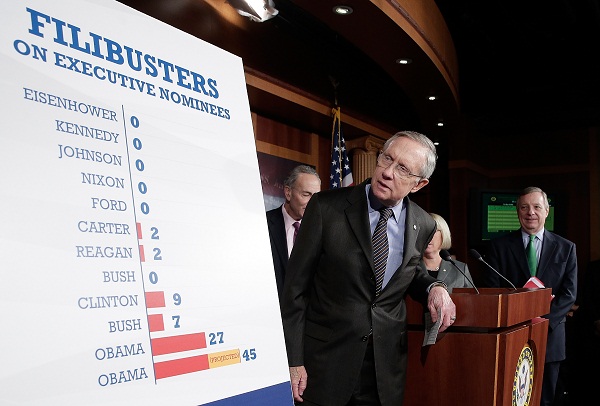
The filibuster, a Senate procedural tactic frequently used by Republicans to block legislation and nominees favored by President Obama, met its match in November, when Senate Democrats voted to deploy the so-called “nuclear option” to neuter its power.
Instead of requiring 60 votes to end debate on Senate business, the change spearheaded by Senate Majority Leader Harry Reid (D-Nev.) meant that only a majority vote is needed to move a bill or non-Supreme Court nominee forward.
Republicans bemoaned the changes to decades of precedent, claiming it was an overreach of power by the majority party. Democrats claimed there was no other choice, given Republican refusal to allow several prominent high court nominations to be voted on by the Senate.
Bipartisan budget deal reached
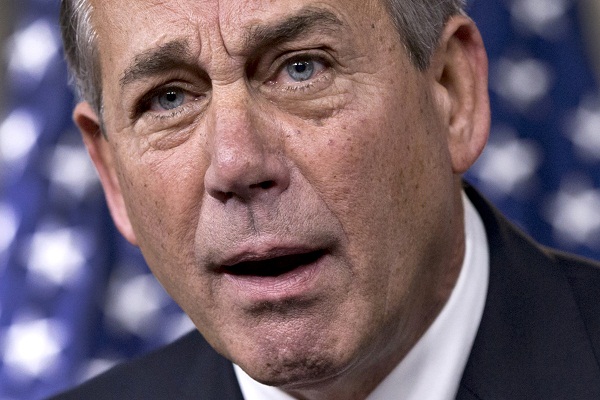
Rep. Paul Ryan (R-Wis.) and Sen. Patty Murray (D-Wash.) unveiled an $85-billion budget deal to avoid the possibility of another government shutdown in the new year. The compromise would also restore some funding trimmed by sequestration cuts.
Conservative Republicans were quick to condemn the plan, riled over the $63 billion restored to the budget, but Republican leadership came down strongly against tea party groups already mounting a challenge to the budget’s passage.
House Speaker John Boehner said in a press conference that such groups were “misleading their followers,” and that “they’ve lost all credibility” since the October government shutdown.
The budget passed the House on Dec. 12 in a 332-to-94 vote.
Sources: Los Angeles Times research
Credits: By Morgan Little, TimelineSetter
